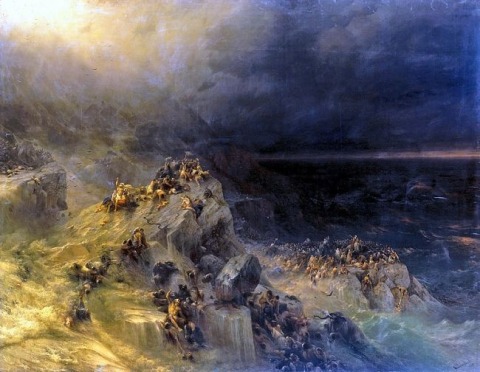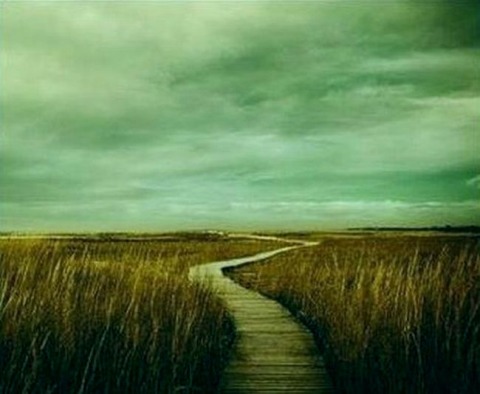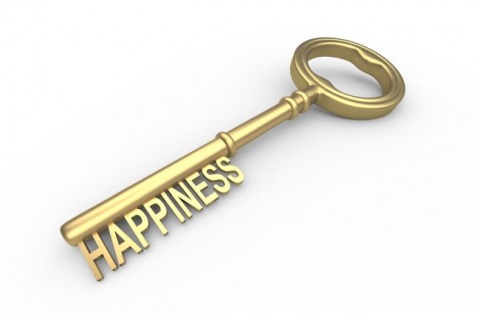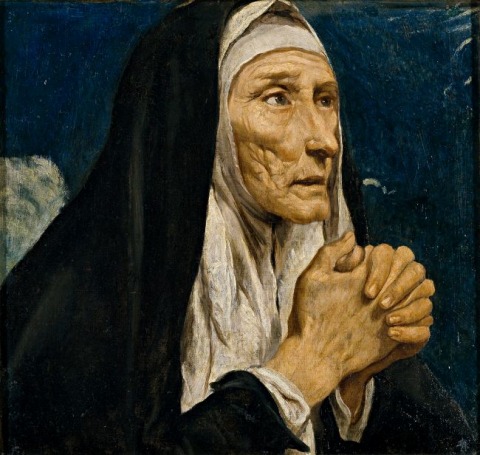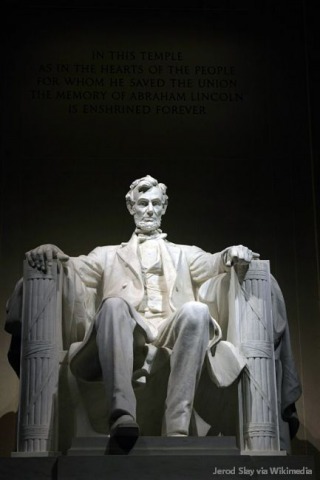
The Underground Thomist
Blog
The Newest Dark AgeMonday, 06-20-2022
A dark age is not so much an age in which the level of technology degenerates as one in which the level of civilization degenerates. We are walking into the newest dark age with eyes open. No barbarians are sacking our cities (we only praise urban riots). Nobody is burning the great libraries (we are only banning books). Nobody is tearing down churches (we just close them in the name of public hygiene). Nobody is liquidating teachers or closing schools (the teachers themselves are destroying them). Nobody is seizing the universities to force them to stop teaching great literature (universities are doing that to themselves). Nobody is enforcing an official religion (you can hold any view of God you wish, so long as you agree that He couldn’t possibly matter to anything). Nobody is forbidding teaching students to read (they just don’t, and we don’t expect them to). Nobody is forbidding teaching students to do arithmetic (except now they use calculators, and wrong answers are affirmed for the sake of self-esteem). We do know lots of facts (we are merely contemptuous of understanding). We aren’t ignorant of basic right and wrong (we just pretend to be). No one has abolished the administration of justice (it has only been perverted for political ends). No one has prohibited elections (we have only manipulated the polls). We don’t so far practice much assassination (except career and character assassination). Persons with disabilities are encouraged to seek help (and to consider themselves disabled even if they aren’t). In fact we help people a lot (especially in ways that infantilize them and make them permanently dependent). We no longer approve of victimizing people (we just encourage them to make permanent victims of themselves). No one is tearing apart families (we break up our homes on our own). No one so far is taking children away from fit parents (parents merely hand them over to be raised by social media). We no longer allow the young to cheer the spilling of blood in the arena (instead we let them spill it themselves in virtual entertainments). No one has prohibited the free press (journalists has chosen spin over honest reportage entirely on their own). We no longer approve of police brutality (in fact we no longer approve of police). We no longer have illegal drugs (they are all becoming legal). We no longer prohibit the publication of filth (we only condemn calling it filth). We don’t say that debasement is wholesome (we merely make pop heroes of debased persons). We no longer have prostitution (those ladies are all sex workers now). We no longer practice compulsory racial segregation, which is degrading (instead we applaud voluntary racial segregation, which is affirming). We no longer approve of racial discrimination (except against Asians and white males). No babies are born into slavery (we just kill them before they are born). Women can pursue any jobs or professions they want (so long as they put motherhood in second place). In fact, biological women are now entirely equal (since as we now know, there are no biological women). Yes, we are bringing this on ourselves. We will get exactly what we want. We may not be pleased when we have it.
|
I’m Just Not Going ToMonday, 06-13-2022
An interviewer wanted to know what I have to say to people who "just aren't going to" believe in God. That sounds more like a statement of intention than a statement of disbelief. There isn't anybody who "just isn't going to" believe in God. If someone as wretchedly far out in the cold and dark as I was could be drawn into faith, anyone can be. But he has to consent. If instead the interviewer had asked what I might say to someone who was personally convinced that he “just wasn’t going to” believe in God, I might say this. First, understand your motives. The philosopher Thomas Nagel wrote in his book The Last Word, “I want atheism to be true and am made uneasy by the fact that some of the most intelligent and well-informed people I know are religious believers. It isn’t just that I don’t believe in God and, naturally, hope that I’m right in my belief. It’s that I hope there is no God! I don’t want there to be a God; I don’t want the universe to be like that.” If Nagel is right, then it isn’t just belief in God that can be a crutch. Nonbelief in God can be a crutch. So keep your mind open. Follow the evidence wherever it leads. Don't stop asking questions. Cultivate friendships not just with other nonbelievers, but also with people who do believe in God. Listen to your mind and your heart. In the meantime, be open to the possibility of an answer by living as though you did believe in God and you trusted Him. Perform the experiment of praying at though you thought He was listening, of worshipping as though you thought He existed, of asking Him to illuminate your mind as though He wanted to do so, and – this is the hard one – of living as He is said to direct. After all, you’ve already been living as though He isn’t real -- what have you got to lose by trying out living as though He is? But don’t do these things now and then. Be persistent. Do them all the time. Do them even when you don’t feel like it. See what happens. This is how you find out whether you really want the answer, or you are just pretending.
|
Was Lincoln Woke?Monday, 06-06-2022
Some years ago, before the word “woke” was so widely used, a student asked me in class “Are you woke?” I had never heard the expression before. Puzzled, I asked “Are you asking whether I’m awake? I try to be.” He said no, that wasn’t what he meant. “Then are you asking whether I’m enlightened?” No, it wasn’t that either. We had been reading Abraham Lincoln’s second inaugural address. Apparently my student thought I might be woke because I took Lincoln’s idea of collective responsibility for the sin of slavery seriously. For as I eventually found out, wokists too believe in collective responsibility – but not the way Lincoln did. My student didn’t grasp the difference, and so I was confusing him. Was responsibility for the sin of slavery shared? According to Lincoln, yes. But Lincoln didn’t say, as wokeists do, that Southerners or white people were collectively responsible, even if they didn’t own slaves. And he was far from saying that another eightscore years later, the descendants of white immigrants would be collectively responsible, even if their ancestors hadn’t been in the country at the time. No, he said that the whole nation was collectively responsible, everyone, because no matter what their divisions might be, Americans composed a single moral community. That’s why he rejected the view of people like Julia Ward Howe that the terrible swift sword of the Civil War was God’s way of punishing the South. He thought the War was God’s way of punishing both sides for complicity in the sin of slavery, using each side to chastise the other. Was repentance for the sin of slavery necessary? According to Lincoln, yes. But Lincoln didn’t say, as wokeists do, that some Americans needed to repent. He thought all Americans needed to repent. No group had the right to be self-righteous, to point fingers, or to demand punitive reparations from the others. Instead, repentant former sinners, both North and South, needed to come together to bind up the nation’s wounds. The calamity of Lincoln’s assassination still burdens us. Had Reconstruction gone his way instead of the way it did, by now the nation might have been healed of racial divisions. Wokism can only tear us apart, but it’s not too late to start thinking about collective responsibility in Lincoln’s way. It was, by the way, a profoundly Christian way, even though Lincoln’s personal religious views are somewhat obscure. From this point of view, wokism, despite its neopagan connections, might even be viewed as a sort of Christian heresy. In Adam, all humans fell. Just because we are all of one kind, we all share in some fashion in the shame of his sin, and we all stand at the doorway to other sin. But in Christ, all sins are atoned. He took our sins upon Himself. We don’t have to project them onto each other. Justice must always be done, certainly. Yet also mercy and humility.
|
The Key to Happiness: First Thoughts InterviewFriday, 06-03-2022
I’ve just posted “The Key to Happiness,” Mark Bauerlein’s interview with me in March, 2022. Mark Bauerlein is host of the First Thoughts podcast at First Things. You can go to it directly here, or you can launch it from my Talks page. Happy listening! And I do mean happy.
|
Children Who Lose Their Faith: What Can You Do?Thursday, 06-02-2022
True story. There once lived a woman whose son had abandoned the faith in which she had raised him. She was far from perfect, and married to a difficult man, but had striven to bring up her son well. Yet he had fallen in with a bizarre ideology which was considered “woke” in his circle, and had begun living with a woman who was not his wife. His mother prayed, but nothing seemed to happen. He was willing to talk with her, but she couldn’t get through. In tears, she sought out a wise and holy man. If only he would talk to her son! If only he would take the young man in hand, refute his errors, and rebuke him for all the wrong in his life! Curiously, the wise man refused. He said that her son was still too full of himself to listen -- still too puffed up with pride, still too infatuated with the newness of his woke beliefs, for the wise man’s intervention to do good. He advised her to pray for her son, and since the young man was still seeking the truth, he would eventually find it himself. Those who seek with all their hearts will find. The woman pestered, weeping and imploring the wise man to change his mind. Finally he lost patience, saying "Go, go! Leave me alone! Continue what you are doing! It is not possible that the son of all these prayers and tears should be lost." That must have sounded too good to be true, but it happened. The wise man, who was the local bishop, is known to us as St. Ambrose. The woman is known to us as St. Monica. The woke ideology that had ensnared her son was called Manichaeism. Her son, called Augustine, returned to the faith and became one of the greatest saints in the history of the Christian Church. Not a bad result of prayers and tears. All this happened at the end of the fourth century and the beginning of the fifth. For generations, the story has encouraged parents of children who lose their faith. Even so, it raises questions. For example, even during the most wanton period of his life, Augustine didn’t lose interest in finding the truth. Today the young are told that there is no truth, or that truth is “whatever works for you.” Yet from this and countless other stories about “reverts” who return to their faith, parents of wandering children can draw many more helpful lessons than one might think, lessons applicable even in times like our own. Why do people lose their faith? Some are raised in an excessively emotional form of faith, which doesn’t satisfy their minds, or a cold form, which doesn’t satisfy their hearts. Some never had faith in the first place, but only thought that they did. Some were treated badly by religious phonies. Some -- I am describing my own young self – didn’t want God to be God, and arrogantly preferred to make gods of themselves …. [Continue reading my article at The Daily Wire – sorry, there’s a paywall, so I am not allowed to show you the whole thing here]
|
AbolitionismMonday, 05-30-2022
Recently, a colleague took issue with the suggestion that Abraham Lincoln believed in natural law. My colleague’s reasoning was that it’s “hard to see how Lincoln’s pragmatic response to Dred Scott – ‘I oppose spread of slavery to the territories but will not urge abolition in the existing slave states’ -- is an example of natural law philosophy.” I hear the same argument so often that it’s worth a brief response. Such arguments are offered not just about Lincoln, but about every early American who detested slavery without agitating for instant abolition. The classical natural law tradition has always distinguished three questions: What is evil (the moral question), what can be done about it (the pragmatic question), and who has authority to do it (the constitutional question). Lincoln made same distinction. One may disagree with Lincoln’s pragmatic judgments concerning how best to put slavery on a path to extinction, or with his constitutional judgments concerning what he as president could or could not do about it. But he plainly thought slavery was a great evil which ought to disappear from this world as soon as possible.
|
Babies as ParasitesMonday, 05-23-2022
Query:We are allowed to remove the typical parasites from our bodies because of the harm they cause. Some argue a child is a parasite inside the mother's body. It takes away nutrients from her and treats her body as a host. The child brings no benefit to the mother when it is inside her body. So if it is okay to remove a parasite, why is it not okay to perform an abortion?
Reply:When you say “some argue” this, do you mean that you might be attracted to the argument too? Please reconsider. Mothers and fathers naturally love for their babies, care for them, and desire to sacrifice for them. If we find it plausible to view unborn children as parasites, I suppose that we must also find it plausible to view born children as vermin. Should we be attracted to this view too? Are toddlers something like rats, creeping around their parents’ houses and eating up their food? We may be coming to think that way. More and more, children are viewed as disposable. But do you want to go there? You seem to assume that the interests of mothers and children are naturally opposed, but by nature, their interests are in harmony. Do you think that when you were developing in your mother’s womb, safe and protected, preparing to enter the world, you were no more than a tapeworm to her? Did she think you were a disease? Were you a disease? Something is dreadfully wrong if we can think of children like this. Since nobody “chooses” to host a real parasite, if we did view babies as parasites, we would eradicate them. Your generation would be the last. You would die, alone, unmourned, because you would have prevented the birth of all those whom you might have loved and cared for, and who might love and care for you in turn. Besides, the womb is the place nature intended the baby to be. It is the temporary natural home of every human being. Providing such a home is the only reason women have wombs at all: So that babies can be in them. It’s true that babies steal into our hearts, but they belong there too. We welcome them in, as you were once welcomed in. You were not a heartworm, but a precious child. Think of all that you must work not to think about in order to forget all these things. And if you have had an abortion yourself, please don’t be afraid to remember these things again. There is no surcease from the accusations of conscience in putting our fingers in our ears. Instead, acknowledge wrong, turn away from it, and seek forgiveness from the merciful God of all life, including yours.
|
